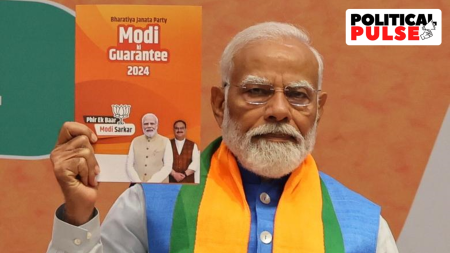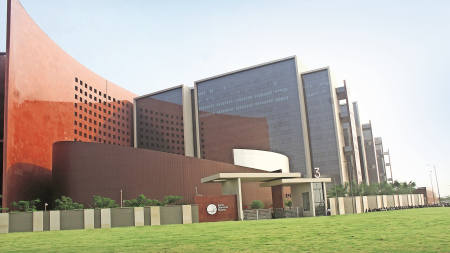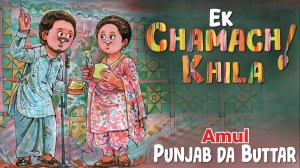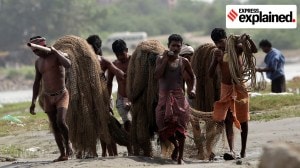- India
- International
Model Bamboo Village: Project to train Gadchiroli villagers as bamboo artisans, entrepreneurs
A bamboo-based initiative - ‘Model bamboo village’ — started by Science and Technology Resource Centre (STRC) at Gondwana University in Gadchiroli — seeks to turn villagers into entrepreneurs, and subsequently transform their village economy.
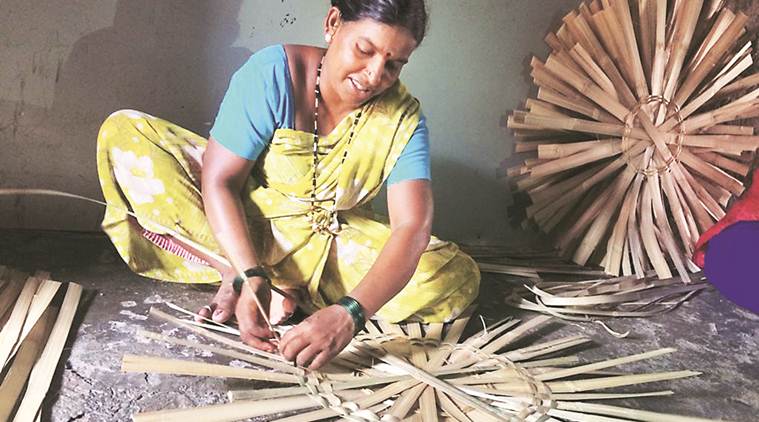 Under the project, 10 bamboo artisans underwent rigorous training for four months at IIT Bombay’s Industrial Design Centre last year. (Express photo)
Under the project, 10 bamboo artisans underwent rigorous training for four months at IIT Bombay’s Industrial Design Centre last year. (Express photo)
Soon, domestic utilitarian bamboo products, made by tribals in Gadchiroli, will hit the markets and plush shops in cities, such as Mumbai, Delhi or Kolkata.
A bamboo-based initiative – ‘Model bamboo village’ — started by Science and Technology Resource Centre (STRC) at Gondwana University in Gadchiroli — seeks to turn villagers into entrepreneurs, and subsequently transform their village economy.
Currently, the project is focusing on two villages, Darachi and Kondawahi in South Dhanora block of Gadchiroli district, which have a population of about 200 people each. Under the project, 10 bamboo artisans underwent rigorous training for four months at IIT Bombay’s Industrial Design Centre last year. They are now acting as trainers to impart skills to villagers, especially the youth.
The project was initiated by Anil Kakodkar, erstwhile chairman of board of governors at IIT Bombay. The first phase of training of this three-month-old project is complete and 27 youths are now part of the channel.
“Presently these villages don’t have a marketing platform to sell bamboo and related products. Bamboo is available aplenty in Gadchiroli. Brokers come and buy a pole for as low as Rs 50 to Rs 60. The villages utilise bamboo for daily domestic purposes, but are not directly benefited by it,” Ranjan Pandhare, scientific officer at STRC, said.

Earlier, bamboo craft used to be a traditional occupation. However, due to decreasing incomes, people veered towards other means of earning, such as collection of tendu leaves and laboring on the farms. Each family in these villages are entitled to nearly 30 bamboo poles as part of their weekly ration. But since people are not able to utilise it, the poles dries and eventually its quality deteriorates.
Bamboo artisan Sachin Dane (29) told The Indian Express: “At IIT Bombay, we pondered over questions like ‘can we replace plastic items with those of bamboo?’ Earlier, we knew bamboo crafts, but we need to learn certain techniques, which can make our product appear more polished and visually appealing. Now, I have gained confidence of being able to make most things out of bamboo.”
The project intends to create villages that will generate livelihoods with bamboo crafts, a full-time common facilities centre where women and youth from the villages will be trained, said Pandhare. “It will also have a marketing link, that will generate revenue for the village from sale of bamboo products.”
Exploring tourism options is also in the pipeline, Pandhare said.
Shital Meshram (24) from Armori taluka is one of the few female artisans who is a part of the initiative. She recently taught over 25 youths, mostly boys. “Very few girls are involved in bamboo crafts. Most girls, having come to these villages after marriage, don’t usually wish to partake in activities. But people of my village who see me are motivated to send their girls,” Meshram said.
Professor Sandesh of Industrial Design Centre, IIT Bombay, said the IDC has been involved in drawing out a road map for villagers to look at bamboo craft as a means of livelihood, based on which they can create their own “verticals of entrepreneurship”.
He added, “We also plan to implement a model production unit, which would be a centre of equipment, facilities and machinery, and would cater to the needs of the youth from this district working in this sector. We have planned for direct market linkages in urban markets like Mumbai, Delhi and Kolkata. We plan to scale up their skill and bring it to a modern market level. The final objective is to create entrepreneurs.”
“In open market, too, there are many products in bamboo and other crafts which sell for no value. We are trying to bring design and production technology by way of mould, pictures and production models to this sector,” the professor said.
IIT Bombay is also launching a one-year diploma in bamboo craft with Gondwana University, which will roll out in July 2020.
Additionally, the emphasis in the curriculum will be imparting transferable skills of working in an NGO. They can easily migrate to other areas in terms of job availability, he said.
While people in the villages are skilled in making bamboo baskets, which hardly sell for Rs 50 a piece, the project will train them in making about 15-20 products and fetch a minimum value of Rs 500 per product, Ashish Gharai, head of STRC said. A mobile holder-cum-speaker, lamps, thalis and diaries, among other things, will be mass produced, he said.
Buzzing Now
Apr 16: Latest News
- 01
- 02
- 03
- 04
- 05




